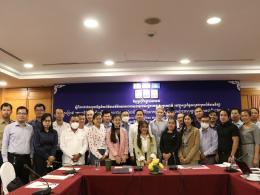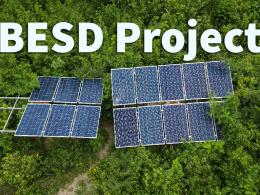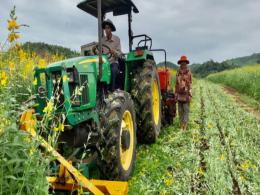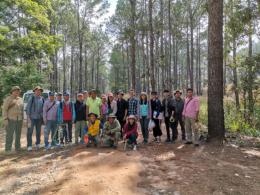Mainstreaming Climate Resilience into Development Planning
Background
Cambodia is one of the countries in the world most vulnerable to climate change impacts. As part of its response to climate change, the Royal Government of Cambodia, in collaboration with its development partners, is implementing the Strategic Program for Climate Resilience (SPCR) with financial support from the Climate Investment Funds. The SPCR emphasizes two streams to promote climate resilience. The first stream is to build knowledge about climate change impacts on Cambodia and how to mainstream climate resilience into agriculture, water resources and transport and urban infrastructure. The second stream is to invest in applying new skills, techniques, technology, and engineering practices for climate resilience.
Overall Objective
Sustained institutional and technical capacity to integrate adaptation concerns into development planning
Expected Results
- SPCR coordination, technical support, and capacity to mainstream climate resilience into development planning strengthened;
- Detailed feasibility studies conducted for selected adaptation projects;
- Civil society support mechanism established, and non-government organizations(NGOs) and civil society organizations (CSOs) given increased capacity to mainstream climate change adaptation (CCA) and disaster risk reduction (DRR) into their operations;
- Adaptation knowledge products developed and disseminated
Location
All 25 provinces of Cambodia
Beneficiaries
350,000 including 179,900 women and girls
Approach
- Organization of regular coordination meetings to improve mainstreaming of climate change into development planning (at national and subnational levels)
- Development of data support infrastructure for climate change risk management
- Application of risk screening tools; vulnerability assessment of key projects; and incorporation of climate risk management in sector guidelines, manuals, and infrastructure design standards
- Preparation of adaptation plans at the commune and district levels, and integration of these plans into commune development plans
- Demonstration of innovative schemes for financing improvements in climate resilience at the subnational level
- Revision of master plan for gender and climate change
- Conduct of feasibility studies for adaptation projects in key sectors
- Identification of indicators for monitoring the effectiveness of adaptation
- Identification of projects that would strengthen the climate resilience of vulnerable groups, including women
- Enhancement of NGO and CSO capacity to mainstream adaptation and DRR into their operations
- Establishment of a knowledge management information system for gathering, storing, and producing adaptation knowledge products
- Conduct of campaigns to raise public awareness of adaptation
- Updating of educational curriculum through the integration of adaptation concerns
- Implementation of gender-responsive and gender-equitable adaptation pilot projects






